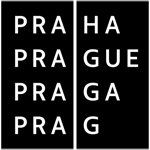French-German Dialogue
CZK 900 | 760 | 580 | 390 (SL/E*) | CZK 150 (ST*)
Donor’s ticket CZK 3 000
*SL/E partial view and organ gallery above the stage
*ST standing
Claude Debussy, arrangement by Marius Constant
Pelléas and Mélisande, symphonic suite
César Franck
The Cursed Hunter
Richard Wagner
Good Friday Spell from the opera Parsifal
Hector Berlioz
The Royal Hunt and the Storm from the opera Les Troyens
Christoph Willibald Gluck
Orpheus and Eurydice, overture to the opera
Jean-Philippe Rameau
Zaïs, overture to the opera
François Couperin/Thomas Adès
Studies after Couperin
I. Les Amusements
II. Les Tours de passe-passe
Johann Sebastian Bach, adapted by Leopold Stokowski
Fugue in G minor BWV 578 "Small"
A concert full of ancient stories
The last orchestral evening features the most diverse concert program of the season. It connects everything that has already been said within it: the music of several epochs, genres and two cultural backgrounds, German and French.
The individual elements of this varied program are interconnected by a dense network of relations, some of which have become decisive for the development of classical music – such as the mutual influence of France and Germany. In the program full of references to ancient stories, we will discern an equally engaging story of the most magnificent musical genre, opera.
Christoph Willibald Gluck as a composer of the Classical period and Richard Wagner as a representative of Neo-Romanticism made history as operatic reformers, and Hector Berlioz’s opera Les Troyens [The Trojans] another example par excellence of the French grand opera. At the same time, however, it displays Berlioz’s admiration for German music, such as that by the above-mentioned Gluck.
Another, Impressionistic form of the opera is illustrated by a suite from Debussy’s opera Pelléas et Mélisande arranged by Marius Constant. The final part of the concert is dedicated to the Baroque: the overture from Rameau’s opera Zaïs will be heard in the original version, while the music by François Couperin and Johann Sebastian Bach will be presented in a more contemporary context.
Couperin inspired the excellent British composer, Thomas Adès, to come up with his own Couperin-influenced works; Bach’s Fugue in G minor has been transcribed into the orchestral version by the legendary conductor of the New York Philharmonic, Leopold Stokowski.














